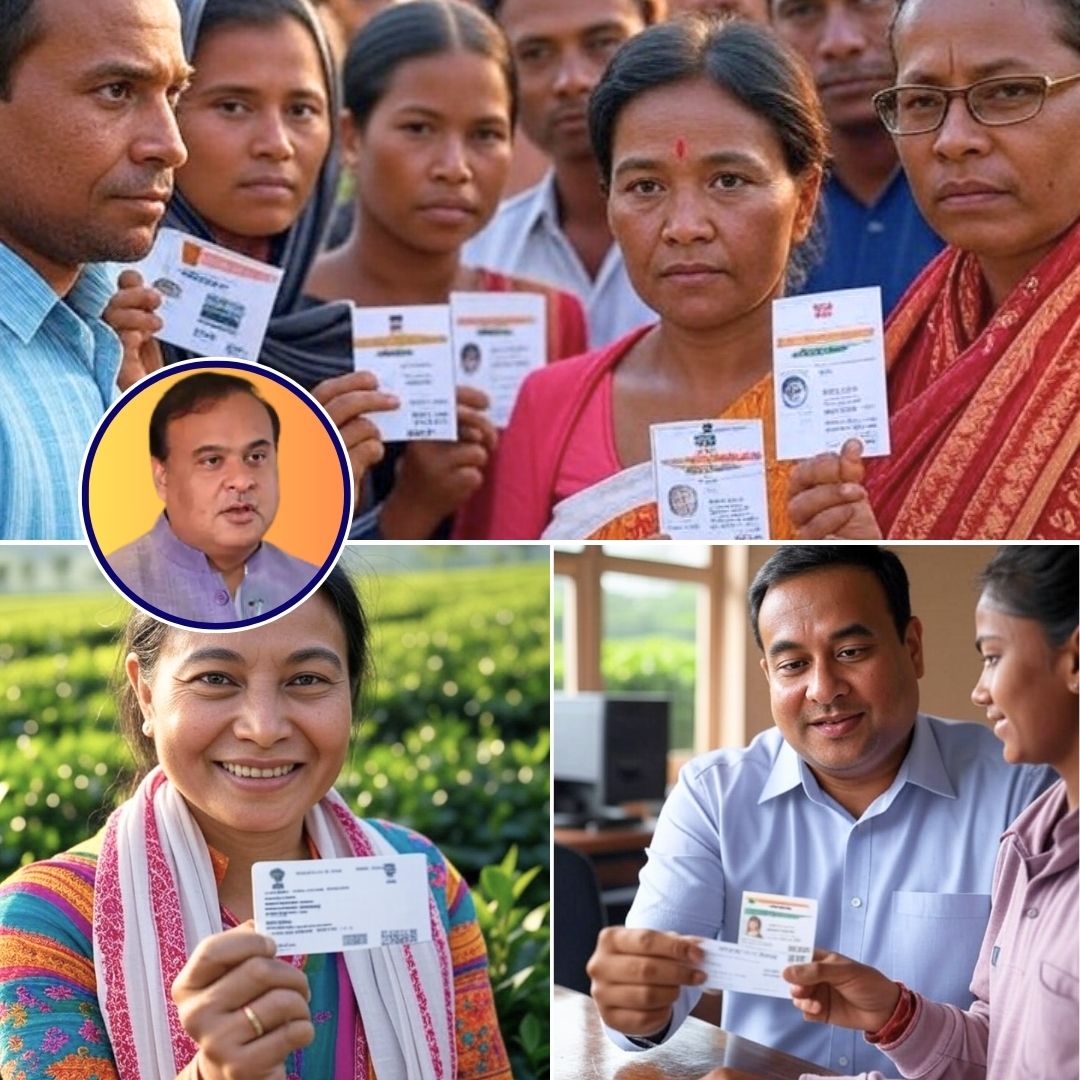The Assam Cabinet has taken a significant step regarding Aadhaar card issuance, announcing a halt to distributing new Aadhaar cards to adults in the state, effective October 1, 2025. This policy, however, makes exceptions for adults belonging to Scheduled Caste (SC), Scheduled Tribe (ST), and tea garden communities, who will be granted a one-year extension until October 1, 2026, to obtain their Aadhaar cards.
Assam Chief Minister Himanta Biswa Sarma clarified that during September 2025, a one-month window will remain open for adults who have not yet applied for Aadhaar. The state’s move aims to curb illegal migration, particularly from Bangladesh, by restricting the availability of this critical identity document. Officials assert that Aadhaar saturation among Assam’s general population has reportedly exceeded 100%, meaning individuals have obtained Aadhaar more than the state’s actual population, justifying the policy’s selective issuance halt.
In contrast, SC, ST, and tea garden groups have saturation levels hovering around 96%, which is why these communities have secured an extended window. The Chief Minister also assured that any genuine Indian adult citizens left without Aadhaar can seek approval through district commissioners, subject to verification, to avoid unintentional exclusion from essential services linked to Aadhaar authentication.
Policy Aims and Official Statements
The Assam government’s decision to restrict Aadhaar card issuance stems from long-standing concerns about illegal immigration and its impact on social, economic, and political spheres in the state. Chief Minister Sarma explicitly linked this measure to safeguarding Assam’s indigenous population and resources from infiltration by illegal migrants. He highlighted troubling cases where unauthorized migration has allegedly resulted in loss of land and employment opportunities for local residents.
The government views Aadhaar card issuance as a critical element in its armoury against illegal immigration, asserting that a population saturation rate surpassing 100% indicates duplication and misuse. “We have thoroughly examined the data; the Aadhaar saturation has crossed the state’s population figures,” Sarma stated during the announcement.
He emphasised that the policy is not discriminatory but is necessary to maintain the integrity of the system in the context of Assam’s border challenges. Officials noted that border districts like Dhubri remain focal points for heightened vigilance due to their proximity to Bangladesh, where concerns over cross-border movements persist.
Background: Aadhaar and Assam’s Complex Context
Assam’s Aadhaar enrolment journey has been deeply influenced by the state’s complex socio-political history, chiefly involving the National Register of Citizens (NRC) exercises. The NRC’s mandate to identify bona fide citizens caused widespread uncertainty, with millions initially unable to secure Aadhaar cards due to pending citizenship verification.
These identification challenges created barriers for many residents in accessing government welfare schemes, scholarships, subsidies, and essential banking services. The decision to limit Aadhaar issuance now unfolds against this backdrop, reinforcing the state’s intention to enforce strict verification while prioritising certain vulnerable communities who have faced historical marginalisation. The one-year extended enrolment window for SC, ST, and tea garden communities is framed as an affirmative action to ensure these groups are not further disenfranchised due to the halt for the general population.
However, some civil society groups voice concern that many genuine citizens belonging to other communities may also be inadvertently excluded from critical documentation and its associated benefits, which sparks debate about inclusiveness and fairness.
Balancing Security and Social Justice
The Logical Indian recognises the delicate balance Assam seeks between protecting its borders and upholding equitable citizenship rights. While the government’s imperative to address illegal immigration is legitimate and crucial for the region’s security and stability, restricting Aadhaar issuance broadly raises risks of unintended social exclusion. Identity documentation is foundational to accessing a range of social welfare schemes, economic opportunities, and rights.
Policymaking around it must therefore be inclusive, transparent, and sensitive to the diverse realities of all communities residing in Assam. The state needs to combine security measures with robust safeguards to avoid isolating genuine residents from essential services and protections.
As this new policy takes effect, The Logical Indian calls on policymakers and stakeholders to engage in dialogue that bridges security priorities with social justice and human dignity.












